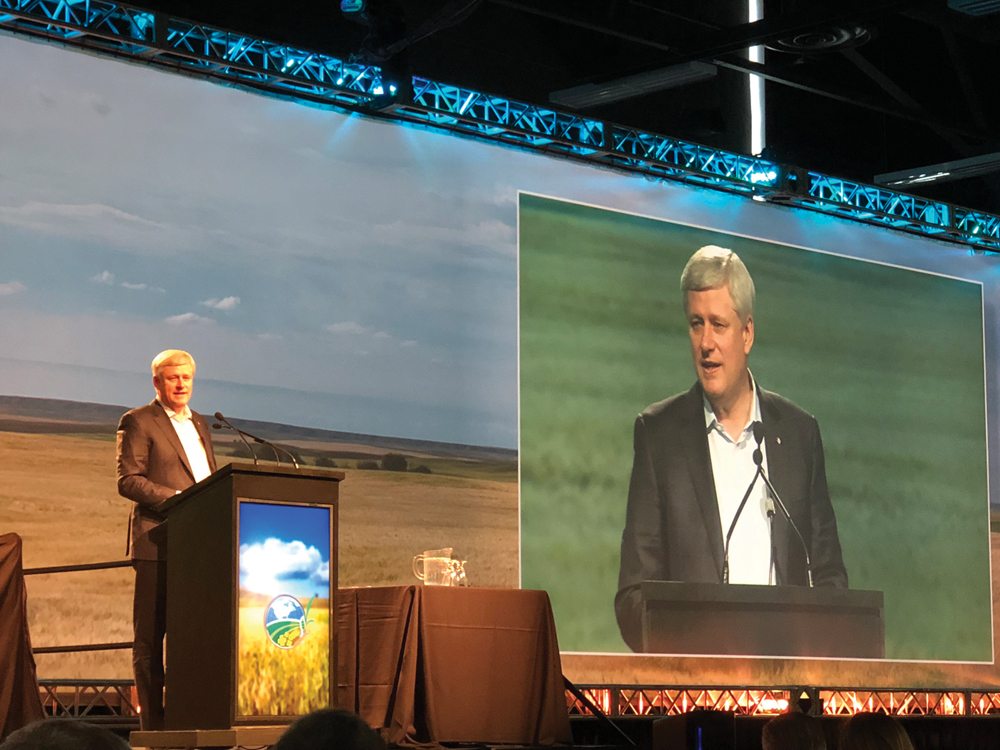Globalization foes are just getting started, but free traders can thrive if they adapt.
He was enthusiastically welcomed as the prime minister who scrapped the wheat board, earning a standing ovation before the first word of his keynote address.But Stephen Harper had his eyes on an even bigger farm issue when he spoke to an enthusiastic crowd of nearly all of FarmTech’s 2,000 attendees.
In a sweeping political and economic analysis, Harper talked of powerful, chaotic forces upending a centuries-old world order — and also kicking up opportunities custom made for entrepreneurial farmers and agriculture.
“These are now unprecedented opportunities for your businesses,” he said. “The free trade access that my government left Canada with means Canada now has access to nearly two-thirds of the world market.
“It is a fairly unique Canadian competitive advantage. An advantage for you and everyone in our country.”
While that message was vintage Harper, it came after he painted a picture of a world beset by a powerful anti-globalization movement that is destroying old-line centrist parties that have promoted global trade.
You can see it everywhere, he said, from the rise of nativism and far-right movements to Brexit and the presidency of Donald Trump. A host of countries have seen angry voters punish politicians favouring freer trade, including Britain, Australia, South Korea, Brazil, and India, he said.
“To quote Donald Trump — and this is my favourite Donald Trump quote — ‘What the hell is going on?’” said Harper, drawing a big laugh from the room that prompted him to quip, “That just works for so many things.”
He then laid out his counterintuitive case — namely that the biggest force underpinning the backlash against free trade has also created an unparalleled opportunity for Prairie farmers to sell more of their grain and livestock around the world.
Trade deals featured prominently in Harper’s recap of his government’s accomplishments. (He spent almost as much time poking fun at himself, including joking that he abandoned his plan to become an accountant because “I didn’t have the charisma.”)
“When I came to office, Canada had free trade agreements with only five countries in the entire world,” he said. “When we left office, we had concluded negotiations with 51 (countries) and all of those are going to be in place very shortly.”
He would repeat those figures twice more, even as he described how anger over lost jobs and stagnating wages has sparked fierce opposition to free trade, especially in the western world.
“It is a division between people whose interests are global — because literally or figuratively, they cross borders every day — and on the other side, those whose interests are local,” he said. “It is a division between those who believe they are benefiting from globalization… and an increasing number of people who believe they are not. And I believe we are only in the early stages of this.”

Adapt to the new world order, says Stephen Harper - Alberta Farmer Express
He was enthusiastically welcomed as the prime minister who scrapped the wheat board, earning a standing ovation before the first word of his keynote